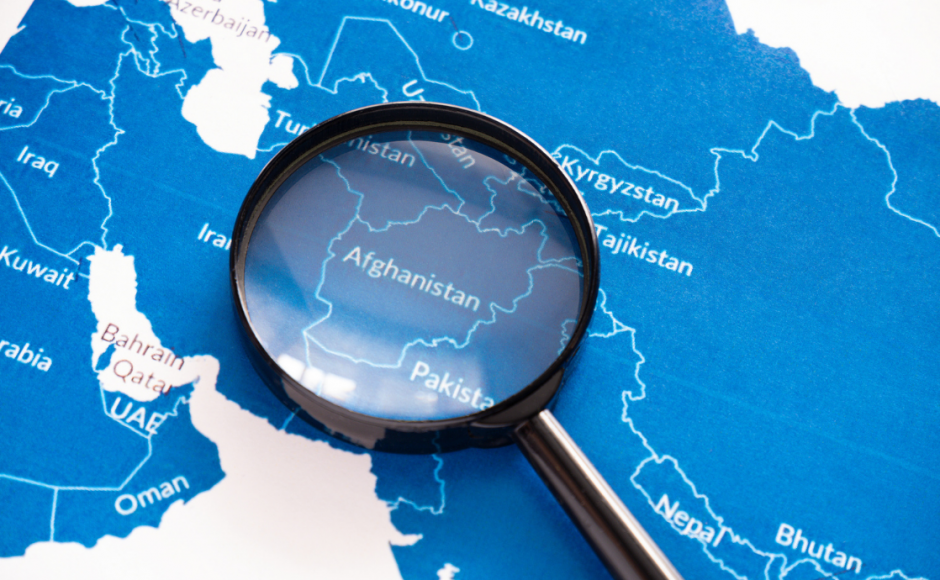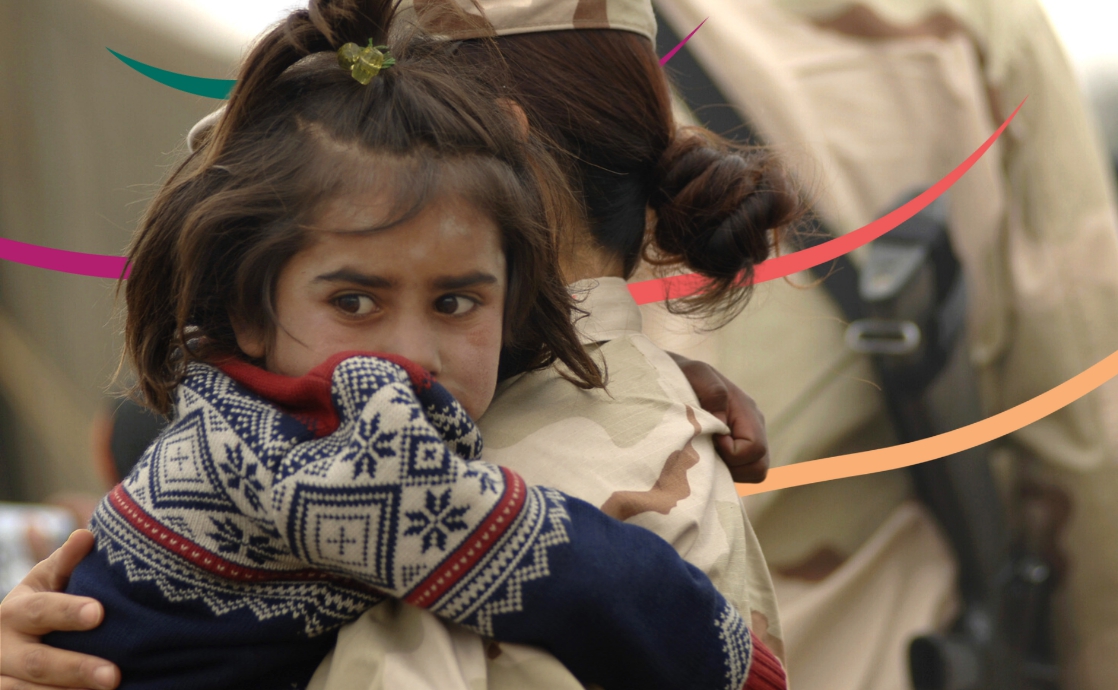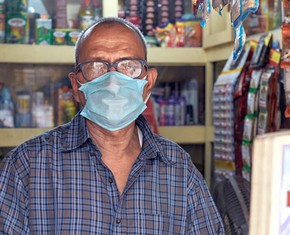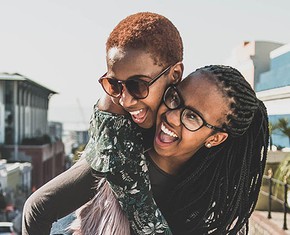The views expressed in our content reflect individual perspectives and do not represent the authoritative views of the Baha'i Faith.
When a war ends and the shooting stops, warriors have two potential paths they can walk: the path of hatred, anger, and revenge, or the path of forgiveness. Which is the most heroic path?
Imagine yourself as a soldier in a long war that has finally ended, like the war in Afghanistan. You’ve gone through hell. The fierce fires of combat have scarred you for life. You’ve survived, but many of your closest friends and comrades didn’t make it. Some died right next to you. You’ve suffered grievous, debilitating wounds to your body, or to your mind and soul.

For me personally, after surviving combat in Vietnam for more than a year, I came home scarred, angry, and injured. My injuries weren’t physical – instead, the war had deeply eroded my faith in humanity itself, and in my own ability to love and trust others. When people try to kill you on a daily basis, you do tend to lose your sense of hope, optimism, and equanimity.
Given those realities, it’s a wonder anyone can muster the spiritual strength to forgive – but it does occur. Even after the absolute horror of war, soldiers and civilians do find it in their hearts to forgive those they once fought against. I have seen it happen, and it’s a beautiful sight.
After all, the enemy’s soldiers didn’t start the war. Battles begin when geopolitical forces and politicians and generals, far above any mere combatant’s pay grade, decide to wage war. So why hold a grudge against soldiers on the other side, who probably didn’t want to be there, either?
The Baha’i teachings ask all of us to not only forgive our enemies, but to do something even harder – to love them. Abdu’l-Baha, in a talk he gave in Oakland, California in 1912, said:
Among the teachings of Baha’u’llah is one requiring man, under all conditions and circumstances, to be forgiving, to love his enemy and to consider an ill-wisher as a well-wisher. Not that he should consider one as being an enemy and then put up with him, or to simply endure him, or to consider one as inimical and be forbearing toward him. This is declared to be hypocrisy. This love is not real. Nay, rather, you must see your enemies as friends, ill-wishers as well-wishers and treat them accordingly. That is to say, your love and kindness must be real.
How is this even possible? Let’s explore.
RELATED: What War Did to Me – and to Us
The Dynamics of Post-War Forgiveness
With the two possible post-war choices in mind – hatred and vengeance; or love and forgiveness – which would you choose?
In my life, I’ve seen the consequences of both choices. My father fought in the Pacific Theater as a Marine infantryman throughout World War II. He was not a Baha’i, so he carried a weapon and shot to kill. He was terribly wounded by a Japanese howitzer; and he killed many Japanese soldiers on the islands of Guadalcanal, Tarawa, and Iwo Jima.
The war traumatized my father for the rest of his life. His hatred for Japan and the Japanese people never altered – he refused, even into the 21st century, long after Japan and the United States had become close allies, to buy any Japanese product. He took the road of revenge rather than the road of forgiveness, and it had a lasting effect on his inner life. Instead of a peaceful resolution, the war continued inside him, and he waged it until he passed away at the age of 90. Emotionally, the war never left him.
Because I became a Baha’i a few years before I was drafted into the United States Army and got sent to the war in Vietnam, I had the advantage of some spiritual support and guidance as a young man, which my father never had. The Baha’i teachings influenced me deeply, especially passages like this one from the writings of Abdu’l-Baha:
O army of God! Beware lest ye harm any soul, or make any heart to sorrow; lest ye wound any man with your words, be he known to you or a stranger, be he friend or foe. Pray ye for all; ask ye that all be blessed, all be forgiven. Beware, beware, lest any of you seek vengeance, even against one who is thirsting for your blood. Beware, beware, lest ye offend the feelings of another, even though he be an evil-doer, and he wish you ill. Look ye not upon the creatures, turn ye to their Creator. See ye not the never-yielding people, see but the Lord of Hosts. Gaze ye not down upon the dust, gaze upward at the shining sun, which hath caused every patch of darksome earth to glow with light.
O army of God! When calamity striketh, be ye patient and composed. However afflictive your sufferings may be, stay ye undisturbed, and with perfect confidence in the abounding grace of God, brave ye the tempest of tribulations and fiery ordeals.
As a result, I tried, when I came home and the war in Vietnam ended, to find it in myself to forgive. I won’t say it’s been easy – it hasn’t – but the process of reflecting and meditating and praying about it from a Baha’i perspective ultimately gave me peace and solace, releasing me from the holding of hard grudges and the hatred that goes with them.
Finally, I found that I could forgive. I realized and then recognized that the longer I held on to my feelings of righteous anger about what happened in the jungles of Vietnam half a century ago, the longer I would suffer. Clinging to old anger, science has shown, produces emotional and physical harm, not just to others but to yourself.
Taking the Path of Love
Mostly, I’ve found, taking the path of love and forgiveness involves a single conscious decision – to evaluate, every day, why we do the things we do. Underpinned by the wisdom and spiritual insight of the holy writings of the world’s religions, we simply decide to reflect daily on the state of our own souls, and prioritize – and repeat – those decisions that arose from a sense of love and kindness. This kind of daily reflection means that we practice applying the spiritual advice of all the great teachers and messengers the Creator has sent us – Abraham, Moses, Krishna, Buddha, Christ, Muhammad, and Baha’u’llah, among many others – and attempt to incorporate it into our lives.
To do that, the Baha’i teachings recommend bringing ourselves to account by asking self-evaluating questions like these each day: Why did I act that way? What made me treat a person like that? Did my actions emerge from a sense of forgiveness? Did I focus on my own shortcomings, rather than the shortcomings of others? Did I act out of love?
In this way, by independently investigating our own inner truth, we can gradually, day by day, examine our motives and resolve to align them with real spiritual values. Baha’u’llah asked every human being to take part in this daily process of self-accounting:
Set before thine eyes God’s unerring Balance and, as one standing in His Presence, weigh in that Balance thine actions every day, every moment of thy life. Bring thyself to account ere thou art summoned to a reckoning …
So as the long, 20-year American war in Afghanistan winds down, and the pain and fury on both sides begins to subside, the war’s veterans and even those of us who never fought there have these same two choices – we can continue fighting inside, or we can try to find it in our souls to forgive. I urge everyone to choose the path of forgiveness.
















Comments
Sign in or create an account
Continue with Googleor